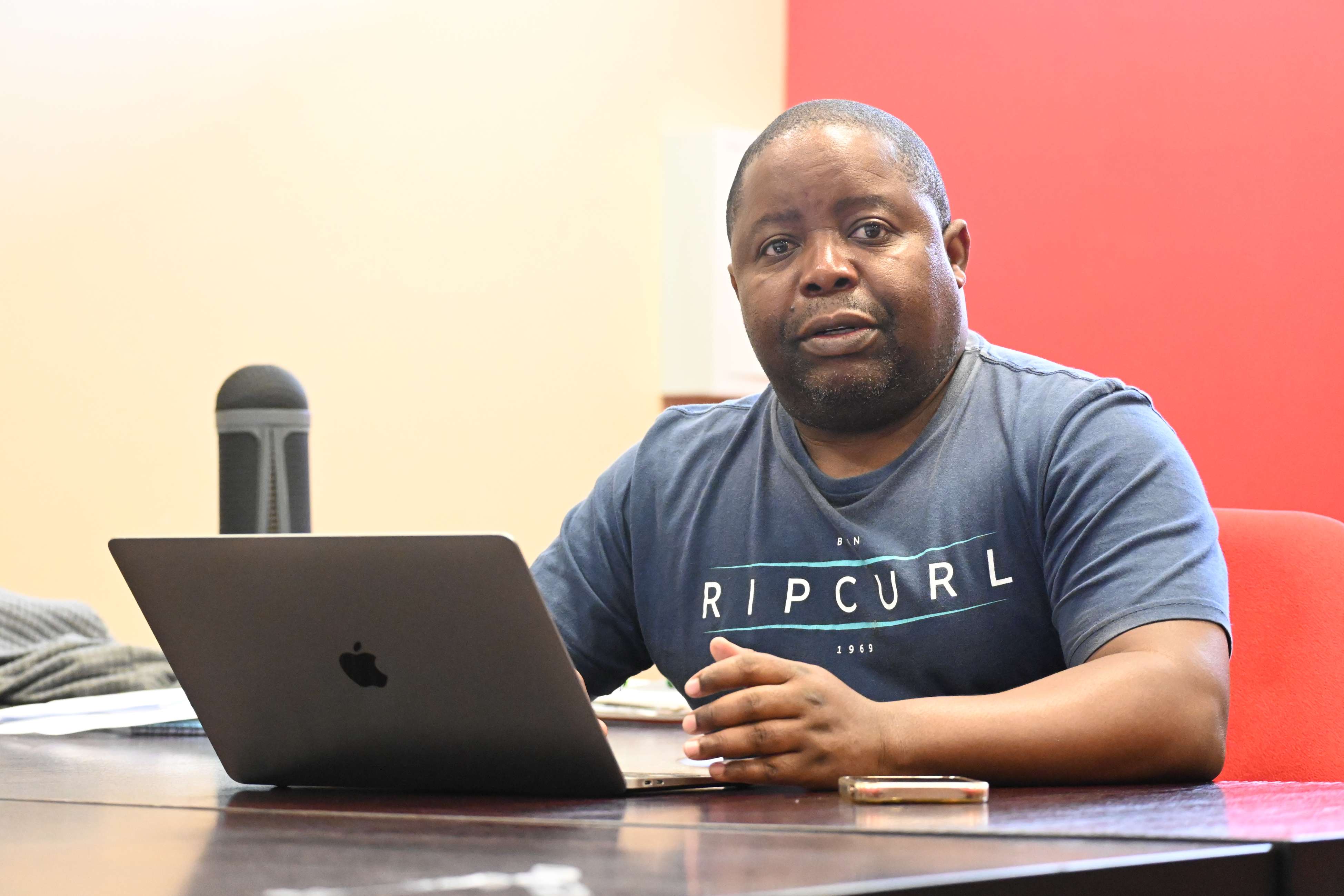WSU ACADEMIC CO-EDITS BOOK TO AMPLIFY AFRICA’S VOICE IN CLIMATE CHANGE

To capacitate the African continent for discourse around climate change, WSU Journalism Associate Professor, Allen Munoriyarwa and Professor Tendai Chari from the University of Venda have co-edited and published a groundbreaking book titled: Climate Change Communication in Africa: Emerging Trends and Practices.
Inspired by the insufficiency of information generated about climate change in Africa, as well as low citizen awareness surrounding the phenomenon, the two scholars sought to examine how media shapes Africans’ perceptions and actions towards climate change.
Chari asserted that despite Africa being the most vulnerable region to climate change, there were still major gaps in ensuring that citizens were sufficiently informed about it.
“The volume highlights the importance of centring Africa’s agency in the climate change discourse, through localising narratives, promoting inclusive and representative discourse, providing empirical insights and practical recommendations for improving the way climate change is communicated in Africa,” said Chari.
Although Africa is continuously plagued by climate change related challenges, Chari said that the continent’s media faced numerous obstacles in covering the issues effectively.
He noted that these ranged from limited financial and human resources for in-depth reporting, to a shortage of personnel with the necessary training, knowledge and skills to report on climate change.
“Traditional and indigenous forms of communication have an important role in communicating climate change because they are rooted in the social, cultural and psychological fabric of the African culture. Their immediacy and participatory nature foster familiarity, and are more suited to communicate complex issues such as climate change, particularly in regions characterised by high levels of illiteracy and diversity,” Chari offered.
In addition to the role of traditional media, Munoriyarwa added that the volume explored contemporary platforms as a space for climate change communication.
“We note that social media platforms amplify climate change messages and voices; they can also be amplifiers of climate denialism, disinformation and misinformation,” he said.
Munoriyarwa also explained that power dynamics played a significant role in shaping climate change conversations, noting that those with power tended to dominate the climate communication ecosystem.
Pointing to examples in the book, he said: “Power permeates different levels of the climate communication process. Various chapters of the book examine the communicative power of social media influencers and mainstream journalists who set the mainstream new media agenda on climate change. In other chapters, the role of TikTokers in the climate communication ecosystem is explored.”
Reflecting on the broader purpose of their book, Munoriyarwa said there were several key takeaways for readers and researchers alike.
“The book has interesting empirical chapters on platforms as avenues of climate change communication… We also offer interesting scholarship on Artificial Intelligence (AI) in climate change communication. The even distribution of the work and research, from Southern Africa to West Africa, to North Africa- makes it more representative,” said Munoriyarwa.
In its nature, this groundbreaking volume directly responds to goal 13.3 of the United Nations’ Sustainable Development Goals which reads: “Improve education, awareness-raising and human and institutional capacity on climate change mitigation, adaptation, impact reduction and early warning.”
By Yanga Ziwele
